
3 Autumn - Art
3 Spring - Art
3 Summer - Art
4 Autumn - Art
4 Spring - Art
4 Summer - Art
Shell Autumn - Art
Shell Spring - Art
Shell Summer - Art
Midway Autumn - Art
Midway Spring - Art
Midway Summer - Art
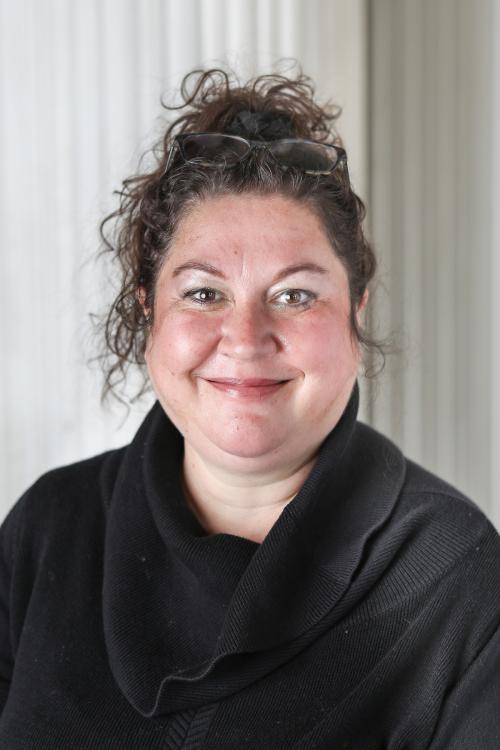 Head of department: Karen Stickney
Head of department: Karen Stickney
The Art Department provides a happy, safe and secure place, where artistic ability can be developed in a stimulating and supportive environment. Children are given the opportunity to explore ideas and challenge themselves artistically. Our well-equipped Art rooms offer a wide range of activities including painting, sculpture, ceramics, printing and textiles. The children are encouraged to experiment with materials and different techniques in order to express their ideas.
Pupils who show significant promise are selected to join the Scholarship Art Group in Year 6. We help children compile and present a wide-ranging scholarship portfolio for their Senior School. Pupils are expected to attend extra art sessions, to keep a sketchbook, undertake holiday projects and weekly art homework.
Upper Autumn - Art
Upper Spring - Art
Upper Summer - Art
Remove Autumn - Art
Remove Spring - Art
Remove Summer - Art
Midway Autumn - Latin
Midway Spring - Latin
Midway Summer - Latin
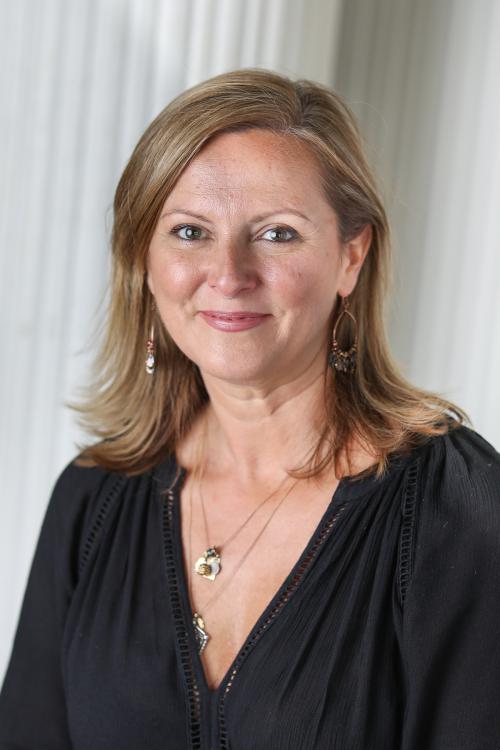 Head of department: Emma Morrell
Head of department: Emma Morrell
Latin lessons at Saint Ronan’s are aimed at bringing the language alive. Pupils are encouraged to spot the similarities between Latin and modern languages and understand how Latin helps us with our own language as well as learn about the lives of the Ancient Romans. All pupils start learning Latin from Midway and nearly all pupils continue to Common Entrance or Scholarship standard at age 13.
In Midway, pupils have their first introduction to the Latin language via the Cambridge Latin Course. This course is packed with stories in Latin which provide an enjoyable and carefully paced introduction to the language, complemented by background information on Roman culture and civilisation.
There are plenty of opportunities to act out stories and plays in Latin, which pupils enjoy immensely. In addition to the wealth of materials provided by the Cambridge Latin Course textbook, pupils are also encouraged to access the Cambridge Latin Course software and website at http://www.cambridgescp.com/. Here they can consolidate their learning through using interactive programmes, which test their vocabulary, allow them to explore the stories and even take virtual tours around Roman houses and the streets of Pompeii!
Upper Autumn - Latin
Upper Spring - Latin
Upper Summer - Latin
Remove Autumn - Latin
Remove Spring - Latin
Remove Summer - Latin
Year 3 Autumn - Computer Science
Year 3 Spring - Computer Science
Year 3 Summer - Computer Science
Year 4 Autumn - Computer Science
Year 4 Spring - Computer Science
Year 4 Summer - Computer Science
Shell Autumn - Computer Science
Shell Spring - Computer Science
Shell Summer - Computer Science
Midway Autumn - Computer Science
Midway Spring - Computer Science
Midway Summer - Computer Science
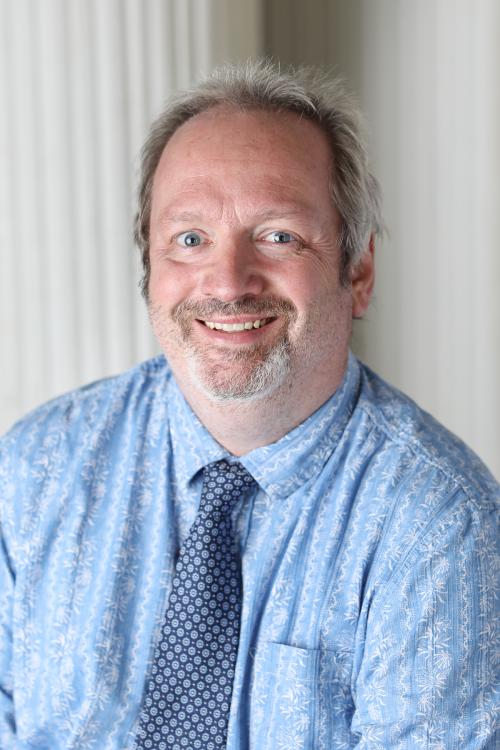 Head of department: Terry Stickney
Head of department: Terry Stickney
Computer Science is a dynamic subject that is in a constant state of change owing to our needs and demands for technology. The children will embark on a journey into abstraction, logic, algorithms and data representation.
At Saint Ronan’s children in Class 3, 4 and 5 will receive two lessons a week. Shell and above will take part in a single lesson a week allowing each child to use logical reasoning, problem-solving and controlling of physical systems.
Every term commences with ‘Internet Safety Awareness’ lessons so that children are kept up to date with online awareness and understanding.
Learning through experimentation and investigation based on a knowledge of the basic principles is encouraged by the department.
The department aims to support the school’s other departments by ensuring the pupils have the necessary skills to complete required Computer Science tasks in other subjects. The following table shows the units which are taught during the Computer Science course at Saint Ronan’s.
Upper Autumn - Computer Science
Upper Spring - Computer Science
Upper Summer - Computer Science
Remove Autumn - Computer Science
Remove Spring - Computer Science
Remove Summer - Computer Science
Year 3 Autumn - Drama
Year 3 Spring - Drama
Year 3 Summer - Drama
Year 4 Autumn - Drama
Year 4 Spring - Drama
Year 4 Summer - Drama
Shell Autumn - Drama
Shell Spring - Drama
Shell Summer - Drama
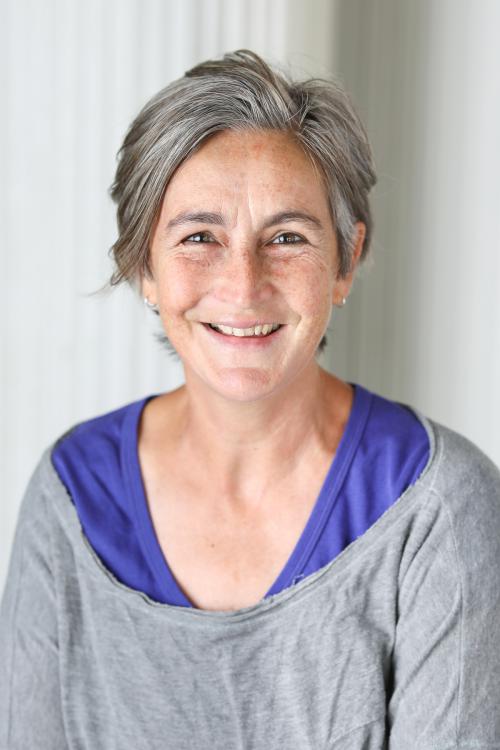 Head of department: Philippa Gibson
Head of department: Philippa Gibson
Drama is seen as an important activity at Saint Ronan’s and contributes to the personal development of the children, as well as enriching their approach to subjects dealing with literacy or performance. With the emphasis on fun, we aim to foster an enthusiasm for Drama and to that end we offer a number of opportunities for pupils to perform throughout the year, in addition to weekly Drama lessons for Years 3, 4 and 5.
In Drama lessons, pupils gain in confidence and develop listening and speaking skills. Their awareness of others and ability to co-operate is enhanced, and they are able to carry their creative ideas through into action in a process of co-operation, performance and review. Amongst other things, pupils learn techniques such as still-imaging and thought-tracking, and devise their own work using these skills.
This year our senior production Great Expectations was performed in December and we will perform the year 5 / 6 musical 'Aladdin' in the Spring term.
Performance date is Wednesday 19th March. In the summer term year 4 will work on a promenade performance outside shortly before Founders Day.
Year 3 Autumn - Engineering and Design
Year 3 Spring - Engineering and Design
Year 3 Summer - Engineering and Design
Year 4 Autumn - Engineering and Design
Year 4 Spring - Engineering and Design
Year 4 Summer - Engineering and Design
Shell Autumn - Engineering and Design
Shell Spring - Engineering and Design
Shell Summer - Engineering and Design
Midway Autumn - Engineering and Design
Midway Spring - Engineering and Design
Midway Summer - Engineering and Design
 Head of department: Andrew Wood
Head of department: Andrew Wood
Our Engineering and Design department is the perfect place for your child to push their creative boundaries, they are encouraged to explore various materials and manufacturing methods as well as using STEM to further develop an understanding of how things work and why.
Children are given the opportunity to explore the fundamental principles of Engineering and Design :- they will experiment with using a wide range of materials and processes to create new and exciting products that they will be able to take home, ranging from camp kits to Klask board games. Within Engineering and Design, we dedicate time for the children to get a taste of robotics and coding using VEX robots, with the aim to compete with other schools worldwide! As well as this, our CAD/CAM machines including 3d printer, vinyl and laser cutter and sublimation printer are just some of the ways we’re introducing our students to make informed design decisions in an innovative way using the same tools used in industry!
Our aim is for the pupils of Saint Ronan's to be authentic designers creating purposeful products for real end Users, this is all possible due to our well-equipped workshop and design suite, which we are always aspiring to find new methods of design and manufacture to give pupils an up to date and relevant experience in the subject. Pupils who show significant promise can become an ED Scholar where we compile a portfolio of work for their senior school.
Upper Autumn - Engineering and Design
Upper Spring - Engineering and Design
Upper Summer - Engineering and Design
Remove Autumn - Engineering and Design
Remove Spring - Engineering and Design
Remove Summer - Engineering and Design
Year 3 Autumn - English
Year 3 Spring - English
Year 3 Summer - English
Year 4 Autumn - English
Year 4 Spring - English
Year 4 Summer - English
Shell Autumn - English
Shell Spring - English
Shell Summer - English
Midway Autumn - English
Midway Spring - English
Midway Summer - English
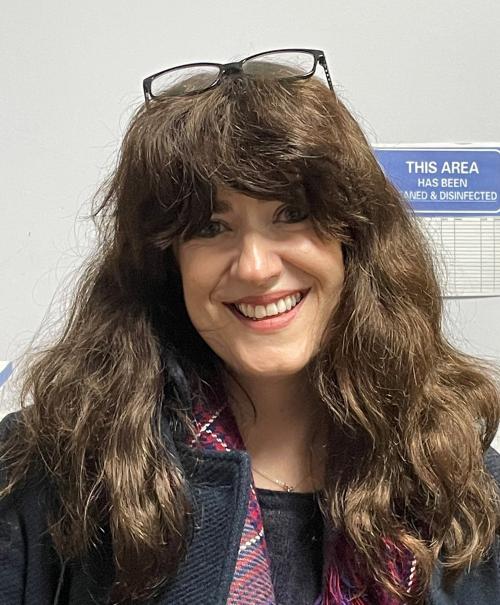
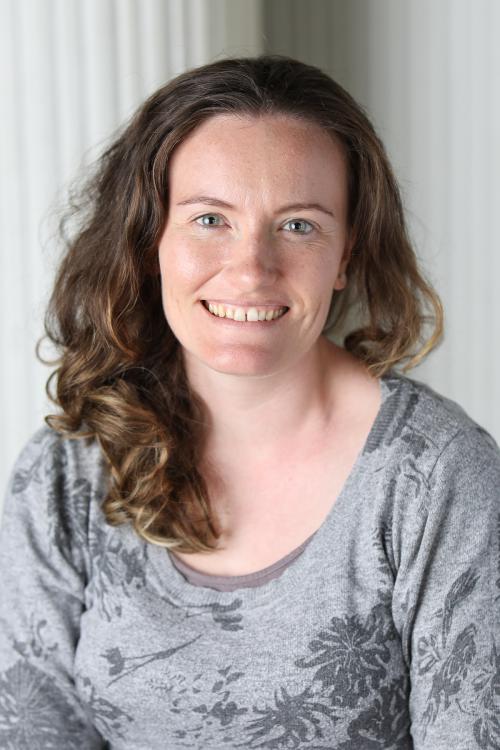 Heads of department
Heads of department
(Upper & Remove): Julie Dooley
(Year 3-Midway): Rose Paterson
The aim of the English department is twofold: There is the academic goal of supporting the pupils to achieve their potential in Scholarship, Cranbrook and Common Entrance exams and there is the commitment of all English teachers to develop the children so that they become articulate and well-read, with vivid imaginations and the ability to appreciate and manipulate language and texts, both orally and on paper.
To achieve this aim Saint Ronan’s is in the enviable position of being able to mix modern learning theories and teaching practice with more traditional elements to produce enjoyable lessons that both stimulate the pupils and further their learning. In all year groups learning focuses on the technicalities of the language, with regular spelling and grammar lessons; on analysing language and texts, with both poetry and prose comprehension exercises, as well as on longer term schemes of work designed to elicit creative responses in poetry, prose and drama.
Pupils have a minimum of three hours of English lessons and half an hour of prep a week. Through these we ensure that all pupils encounter and try out for themselves a wide range of different ways in which English can be used, including classic and modern texts, plays, short stories, poetry and a variety of non-fiction texts. Outside of lessons pupils are encouraged to read, as well as to share their reading with other pupils. If, by the end of their time at Saint Ronan’s, we will have managed to light at least a spark in each pupil, to engender a love for English, the language and the literature, and to nurture creativity, we will have succeeded.
Upper Autumn - English
Upper Spring - English
Upper Summer - English
Remove Autumn - English
Remove Spring - English
Remove Summer - English
Year 3 Autumn - French
Year 3 Spring - French
Year 3 Summer - French
Year 4 Autumn - French
Year 4 Spring - French
Year 4 Summer - French
Shell Autumn - French
Shell Spring - French
Shell Summer - French
Midway Autumn - French
Midway Spring - French
Midway Summer - French
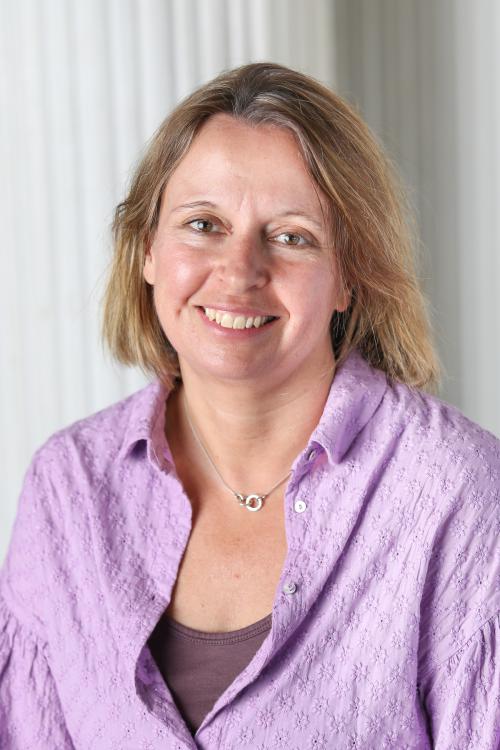 Head of Department: Corinne James -
Head of Department: Corinne James -
At Saint Ronan’s we believe that learning a foreign language provides a valuable educational, social and cultural experience for all pupils. The learning of a foreign language provides a medium for cross-curricular links and for the reinforcement of knowledge, skills and understanding developed in other subjects.
As a school we have chosen to study French as our Modern Language and French is studied all the way through the Pre-Prep and the Prep School, from Year 1 to Year 8.Five specialist teachers are used to teach French to ensure an excellent model of the spoken language, as well as to facilitate learning about French culture.
In Years 3 -5, French learning focuses on developing oracy skills (listening and speaking), with literacy skills (reading and writing) gradually added.
Intercultural Understanding is also incorporated into lessons when relevant. Knowledge About Language and Language Learning Strategies are addressed as appropriate during MFL teaching.
IT resources are used to support and reinforce teaching in class and provide an opportunity for independent learning at home. In Years 6 – 8, the teaching and learning focuses on preparing the pupils for the 13+ Common Entrance French exam. An important aim of the CE French course is to encourage positive attitudes towards the use of foreign languages and an interest in the French speaking world.
Learning French offers many opportunities for links with other curriculum areas, for example Literacy (speaking and listening skills, knowledge and understanding of grammatical structures and sentence construction), Numeracy (counting, money, the time, the date) and PSHE (international work, celebration of festivals, storytelling).
Saint Ronan’s is working with a school in Le Touquet to set up a school exchange programme enabling all Year 7 pupils to have French pen friends. This incorporates a visit to a French school as part of the annual school trip to France in Year 7.
A number of other school trips are arranged throughout the year to provide further opportunities for enrichment and intercultural understanding. These include a Year 5 trip to the BFI in London, to take part in a film workshop, and a Year 6 day trip to Boulogne. (New for 2022).
The French department also organizes French days at school and celebrates the European Day of Languages every year.
Upper Autumn - French
Upper Spring - French
Upper Summer - French
Remove Autumn - French
Remove Spring - French
Remove Summer - French
Year 3 Autumn - Geography
Year 3 Spring - Geography
Year 3 Summer - Geography
Year 4 Autumn - Geography
Year 4 Spring - Geography
Year 4 Summer - Geography
Shell Autumn - Geography
Shell Spring - Geography
Shell Summer - Geography
Midway Autumn - Geography
Midway Spring - Geography
Midway Summer - Geography
Upper Autumn - Geography
Upper Spring - Geography
Upper Summer - Geography
Remove Autumn - Geography
Remove Spring - Geography
Remove Summer - Geography
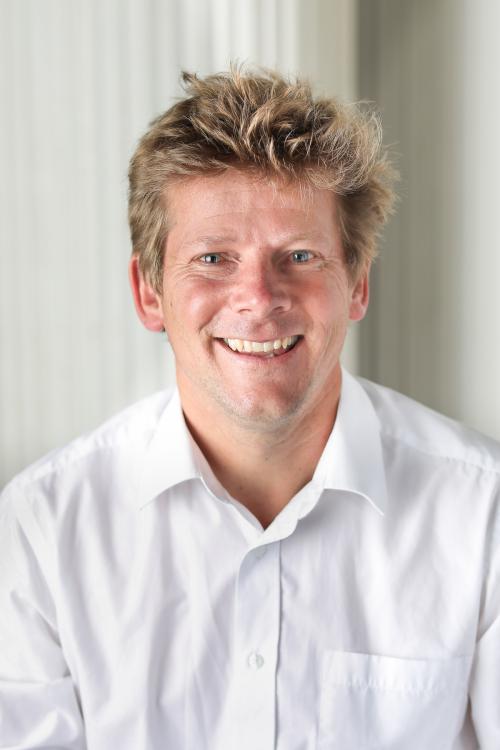 Head of Department: Dale Bright -
Head of Department: Dale Bright -
Geography is quintessentially a ‘discovery subject’. It starts at an early age, when a young child encounters and begins to discover the world. By helping to explain and inspire curiosity about the earth, Geography can nourish and enrich a whole lifetime of learning. Geography fascinates and enthralls: the beauty of the earth, the terrible power of earth-shaping forces – these things can take us out of ourselves. Geography deepens understanding: many contemporary challenges – climate change, food security, energy choices – cannot be understood without a geographical perspective. We explore values and issues, and challenge stereotypes whilst still encouraging the children to think for themselves. We aim to give Saint Ronan’s children the freedom to develop their own informed ideas and to have the confidence and ability to defend their opinions.
There was a time when it was all about exploration, describing and assembling information about the world: literally, geography was ‘writing the world’. Today, geography can embrace many forms of enquiry and exploration, using imagination and creativity to think critically about what we see. It is still about exploration and discovery, but using the media and digital technologies as well as first-hand experience. Geographers are skilful: using maps and mediated images of people and place, numerical data and graphical modes of communication and getting to grips with the geographic information systems that underpin our lives, make geographers skilful and employable.
Geography serves vital educational goals: thinking and decision-making in Geography helps us to live our lives as knowledgeable citizens, aware of our own local communities in a global setting. At Saint Ronan’s, Geography students will learn through the following themes:
Each year group will be involved in fieldwork of some sort, whether this be off-site or using the beautiful grounds at Saint Ronan’s.
Year 3 Autumn - History
Year 3 Spring - History
Year 3 Summer - History
Year 4 Autumn - History
Year 4 Spring - History
Year 4 Summer - History
Shell Autumn - History
Shell Spring - History
Shell Summer - History
Midway Autumn - History
Midway Spring - History
Midway Summer - History
 Head of Department: James Yeabsley -
Head of Department: James Yeabsley -
Students at Saint Ronan’s study a broad and diverse range of historical topics. In Pre-Prep, they learn about how people have left traces of their past in buildings, objects and writing. They then go on to to understand how individuals can leave marks, too, with their actions and words. In the junior Prep School, students go on to compare and contrast the great Roman and Mayan civilizations and study the adventures of the Vikings and the intrigue of The Tudors. Higher up the Prep School, Midway then look at the development of empires and nation states, with a depth study of the British Empire, The French Revolution and the World Wars of the twentieth century. In Upper and Remove, students work towards the CE exam, focusing on Medieval England and the exploits of megalomanic kings, traitorous Archbishops and rebellious peasants.
The History department at Saint Ronan’s is very well-equipped, with access to the very latest in curriculum resources to make lessons relevant, engaging and rewarding. Educational excursions are also a big part of the teaching and learning of history and there are a wide range of trips and visits to inspire students and help them become lifelong learners. Highlights include the Tower of London and Canterbury Cathedral. Furthermore, we bring experts in with a ‘Roman day’ and online workshops from the National Archives.
History is more relevant today than ever and while many of us remember simply learning facts, History teachers at Saint Ronan’s encourage critical thinking, evaluation and creativity. Saint Ronan’s gives students an excellent base for the content and skills required to excel at GCSE and A Level. Finally, we like to think our students will leave Prep school with a passion for our past that they will pass on to the next generation.
Upper Autumn - History
Upper Spring - History
Upper Summer - History
Remove Autumn - History
Remove Spring - History
Remove Summer - History
Year 3 Autumn - Mathematics
Year 3 Spring - Mathematics
Year 3 Summer - Mathematics
Year 4 Autumn - Mathematics
Year 4 Spring - Mathematics
Year 4 Summer - Mathematics
Shell Autumn - Mathematics
Shell Spring - Mathematics
Shell Summer - Mathematics
Midway Autumn - Mathematics
Midway Spring - Mathematics
Midway Summer - Mathematics
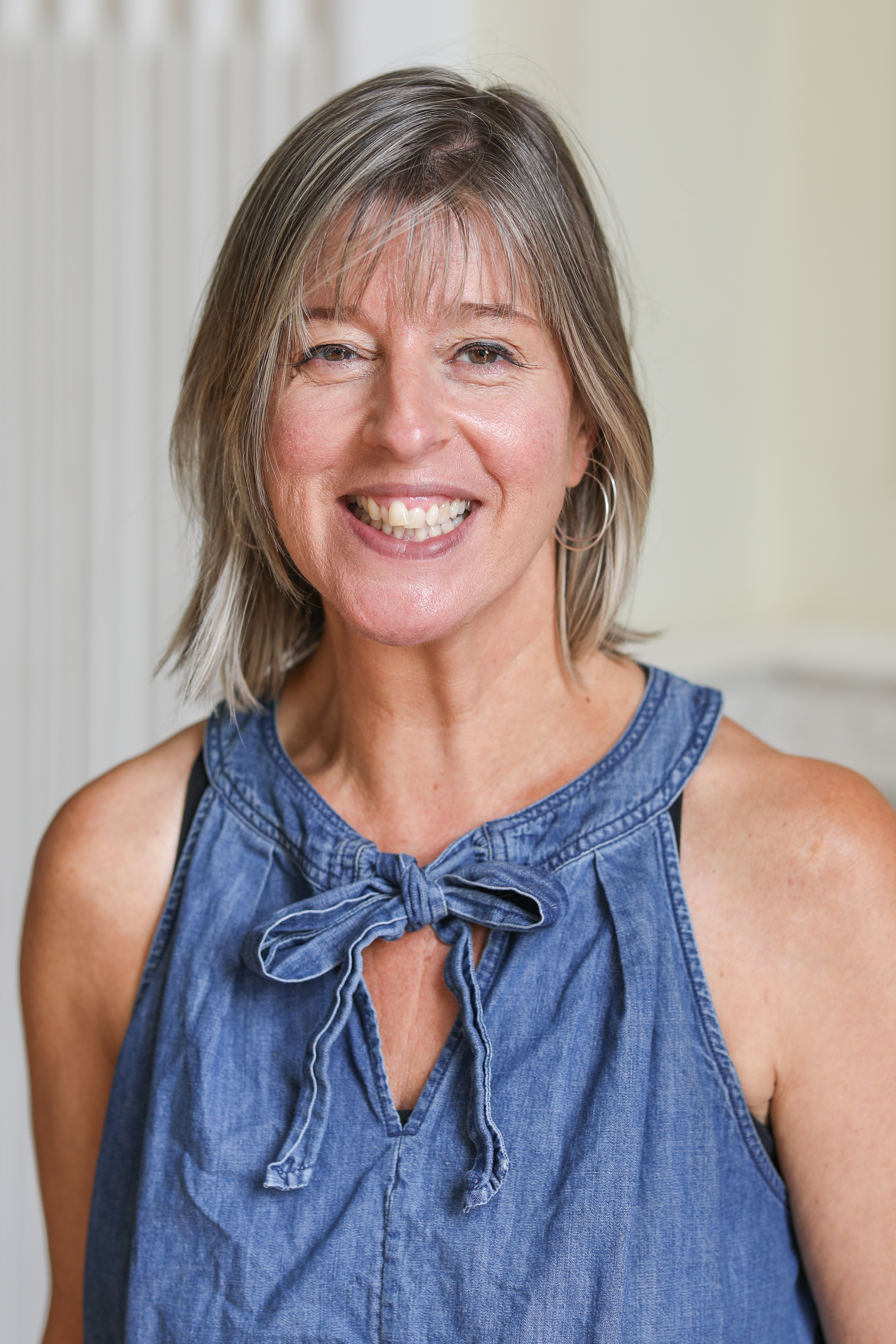 Head of Maths Department: lizz Peacock -
Head of Maths Department: lizz Peacock -
At Saint Ronan’s, our aim is to give all our pupils a solid grounding in both everyday mathematics and the ability to solve problems, think logically and apply rules and methods in different situations, ultimately equipping them for CE and GCSE success.
We want our children to enjoy the subject, be excited for their lessons and make good progress. We hope that our lessons will inspire the confidence in our pupils to tackle increasingly challenging problems and to strive to give their best.
We believe an appreciation of Mathematics is important for gaining an understanding of how the world works. We aim to promote an enjoyment of Maths and intend to instil an enthusiasm for, not only, learning Maths but also understanding it, as well as generating a curiosity around the subject. We believe that understanding Mathematical concepts is a life skill and that by developing a child’s ability to calculate and reason will enable them to gain satisfaction from solving problems.
We aim to promote this enjoyment and enthusiasm for the learning of Maths through practical activity, exploration and discussion. We aim to dispel, the sadly all too common, fear of numbers! We believe that children should take risks in Maths and adopt a ‘have-a-go’ approach. Enabling a child to develop confidence in Maths is key to a child exploring ideas and developing their own independent thinking. We provide stimulating lessons with an emphasis on seeing how the numbers relate to the problem rather than blindly applying a method.
Upper Autumn - Mathematics
Upper Spring - Mathematics
Upper Summer - Mathematics
Remove Autumn - Mathematics
Remove Spring - Mathematics
Remove Summer - Mathematics
Year 3 Autumn - Music
Year 3 Spring - Music
Year 3 Summer - Music
Year 4 Autumn - Music
Year 4 Spring - Music
Year 4 Summer - Music
Shell Autumn - Music
Shell Spring - Music
Shell Summer - Music
Midway Autumn - Music
Midway Spring - Music
Midway Summer - Music
 Head of department: Tom Elliot
Head of department: Tom Elliot
Through a curriculum of wide ranging musical activities the Music department at Saint Ronan’s aims to provide opportunities for all pupils to:
• Develop their understanding and appreciation of music
• Acquire the knowledge, skills and understanding needed to make music
• Enjoy opportunities for music performances in formal and informal settings
• Create and organise sounds in composition projects in order to express ideas and feelings through music
• Extend their own interests and talents through individual music tuition
• Participate in small specialist ensembles to support instrumental study
• Develop co-operative attitudes and personal skills in choirs and orchestras
• Develop skills, attitudes and attributes that support learning in other subjects e.g. listening skills, concentration, creativity, intuition, aesthetic sensitivity, perserverence, self-confidence and sensitivity towards others.
The interrelated skills of listening, performing, appraising and composing are developed within the units of study presented here.
Upper Autumn - Music
Upper Spring - Music
Upper Summer - Music
Remove Autumn - Music
Remove Spring - Music
Remove Summer - Music
Year 3 Autumn - Theology, Philosophy & Religion
Year 3 Spring - Theology, Philosophy & Religion
Year 3 Summer - Theology, Philosophy & Religion
Year 4 Autumn - Theology, Philosophy & Religion
Year 4 Spring - Theology, Philosophy & Religion
Year 4 Summer - Theology, Philosophy & Religion
Shell Autumn - Theology, Philosophy & Religion
Shell Spring - Theology, Philosophy & Religion
Shell Summer - Theology, Philosophy & Religion
Midway Autumn - Theology, Philosophy & Religion
Midway Spring - Theology, Philosophy & Religion
Midway Summer - Theology, Philosophy & Religion
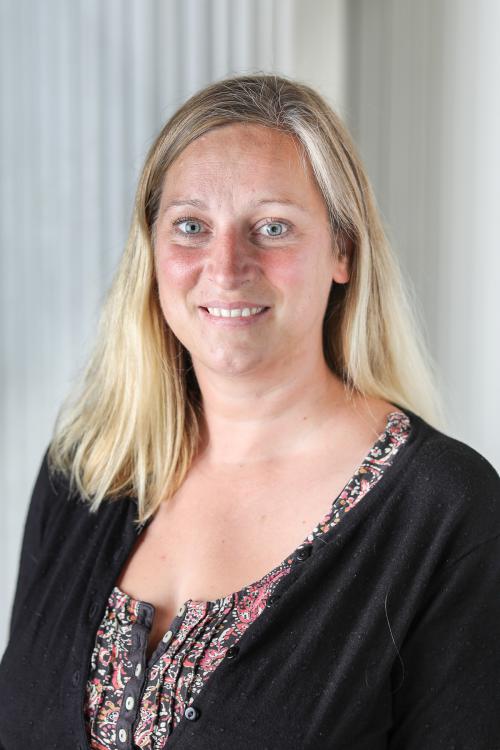 Head of department: Elizabeth George
Head of department: Elizabeth George
Our curriculum in Religious Education, in line with most courses of study in the subject, aims to give all children a good grounding in the following areas: Bible knowledge; World Religions; contemporary issues – but also, just as importantly, to encourage curiosity and tolerance towards religious beliefs and practices, as well as spiritual and ethical matters.
Children in Class 3 and Class 4 look at a number of Bible stories (starting with the Old Testament in Class 3, then the New Testament in Class 4). This foundation programme gives them a broad appreciation of the Bible, together with the historical background and moral education contained therein. In addition, one separate topic is covered in each year group: Special Days, in Class 3; Faith Leaders (such as Buddha or Pope Francis), in Class 4.
The main focus in Shell and Midway then shifts to World Religions, contemporary issues, ethical thinking and philosophy. The following is studied over these two years: The 6 major world religions with particular attention paid to pilgrimage, founders and leaders.
From Midway onwards, all the work forms part of the Common Entrance preparation, as we cover the ISEB Syllabus for Theology, Philosophy and Religion. Midway cover Islam (beliefs and practices) and Christianity (Practices and Ceremonies) followed by Great Philosophical thinkers and their ideas.
In Upper, ethical issues take centre stage with pupils covering the environment, prejudice, discrimination and freedom, life and death and punishment. Skills are honed in essay writing.
In Remove, Islam (practices and ceremonies) is taught as well as general preparation for the CE exam, including revision techniques and a review of topics covered in Midway and Upper.
With the new syllabus, there is increasingly an emphasis on an understanding of contemporary ethical and philosophical issues. At this stage, children start grappling with some of the “bigger questions” and developing insights about human nature and society. Children begin the process of weighing up evidence and presenting a balanced argument, learning not only to articulate their own opinions, but also to appreciate others’ viewpoints.
Upper Autumn - Theology, Philosophy & Religion
Upper Spring - Theology, Philosophy & Religion
Upper Summer - Theology, Philosophy & Religion
Remove Autumn - Theology, Philosophy & Religion
Remove Spring - Theology, Philosophy & Religion
Remove Summer - Theology, Philosophy & Religion
Year 3 Autumn - PE
Year 3 Spring - PE
Year 3 Summer - PE
Year 4 Autumn - PE
Year 4 Spring - PE
Year 4 Summer - PE
Shell Autumn - PE
Shell Spring - PE
Shell Summer - PE
Midway Autumn - PE
Midway Spring - PE
Midway Summer - PE
Set within Saint Ronan’s impressive grounds are numerous pitches for all major games, a challenging cross-country course and athletics facilities. The school also has a heated outdoor swimming pool, four tennis courts, a Sports Hall and a new Astro.
Pupils have curriculum PE lessons focusing on activities such as gymnastics, badminton, cross-county running and swimming. In addition, they have daily training sessions for major games in preparation for their match afternoons. There is also an extensive extras programme where the pupils have a choice of different activities, ranging from mountain biking, fencing, judo to table tennis and fishing, for example.
Participation in PE and Games allows pupils to develop their skills, tactical awareness, sportsmanship and fitness in a wide range of activities. Inter-school matches and house matches then provide an excellent opportunity to demonstrate the pupil’s ability in a more competitive environment.
The programme provided aims to inspire and enthuse all the pupils to foster a love of sport which they can continue to pursue when they leave Saint Ronan’s.
Upper Autumn - PE
Upper Spring - PE
Upper Summer - PE
Remove Autumn - PE
Remove Spring - PE
Remove Summer - PE
Year 3 Autumn - PSHEE
Year 3 Spring - PSHEE
Year 3 Summer - PSHEE
Year 4 Autumn - PSHEE
Year 4 Spring - PSHEE
Year 4 Summer - PSHEE
Shell Autumn - PSHEE
Shell Spring - PSHEE
Shell Summer - PSHEE
Midway Autumn - PSHEE
Midway Spring - PSHEE
Midway Summer - PSHEE
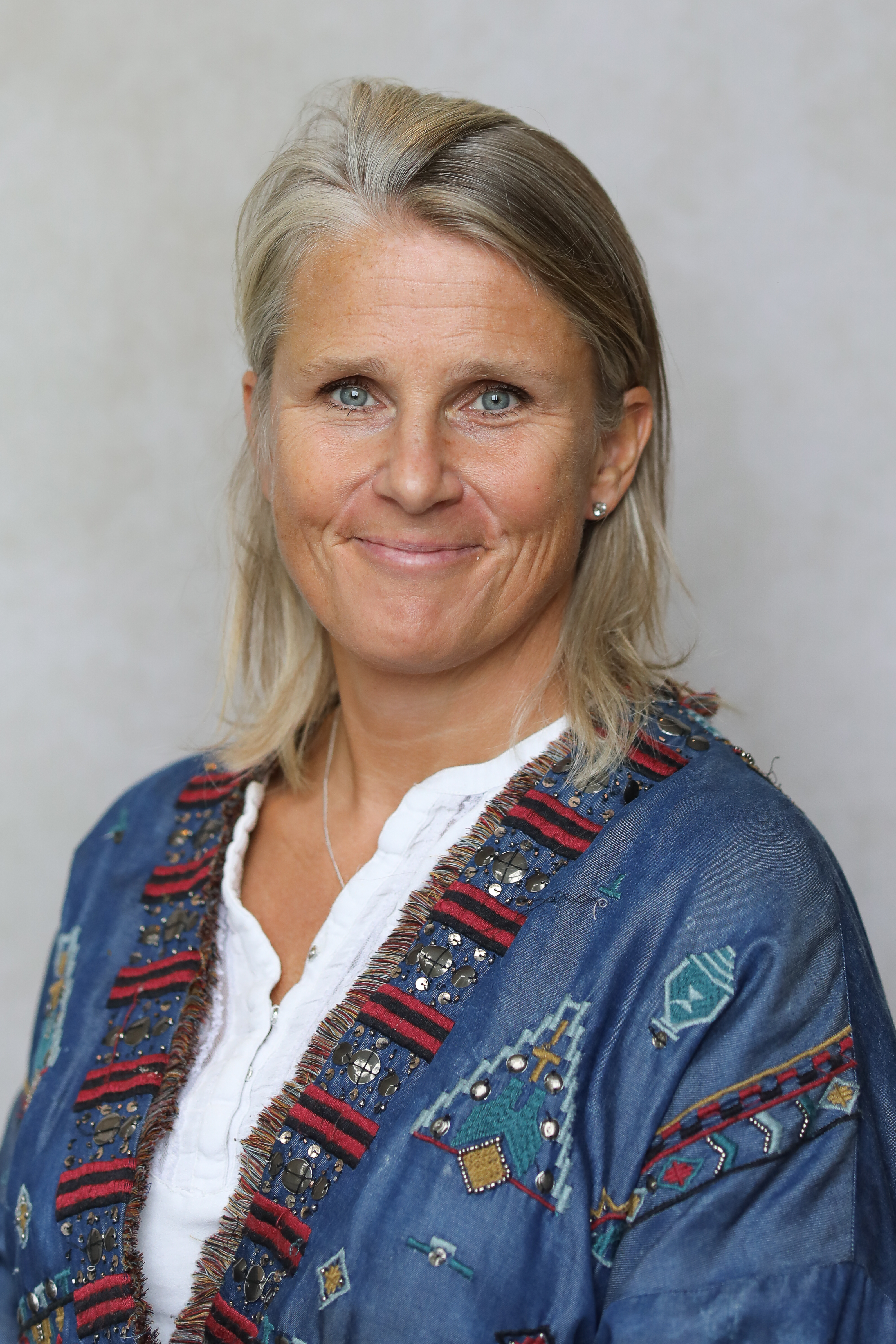 Head of department: Marie Bottle
Head of department: Marie Bottle
PSHE (as the subject tends to be known nationally) is considered to be one of the most important subjects in the curriculum – perhaps surprisingly, for some. Indeed, it is not an examined subject, so has little obvious impact on one’s studies. However, it is possibly the subject that might have the greatest influence on a pupil’s life, in its holistic dimension. It will raise awareness about some of the major issues that children do or will face; it can inform several crucial choices and help to shape attitudes in many areas of one’s life.
Our course is co-ordinated throughout the school, from Reception to Year 8. The Pre-Prep classes follow the syllabus led by their Class Teacher and in the Prep School, each year group has one 35-minute lesson per week, which is led by a small team of teachers. Our sessions are fairly informal, with as much discussion as possible. The pupils are encouraged to think deeply about a range of issues that concern them now and will be important for them as they join adult society. Pupils are not tested on any of these topics and this allows them to relax and give their opinions openly, without fear of “getting things wrong”.
As a department we are aware that, in PSHE, no one set of objectives can take full account of the individuality of each boy or girl. So we aim to support the development of certain personal qualities and attitudes among all our pupils, such as:
• Independence of Mind
• Self-reliance, self-discipline and self-respect
• A commitment to remain healthy
• An enterprising and persistent approach to tasks and challenges
• Consideration for others
• A sense of fairness, together with respect for the processes of law and for the legal rights of others
• Respect for ways of life, opinions and ideas different from one’s own
• Readiness to act on behalf of the legitimate interests of others who cannot effectively act for themselves
• A commitment to promoting the well-being of the community through democratic means
• Concern for the conservation of the natural world and for the physical, including the built, environment
The PHSE department is always open to suggestions for new areas of discussion from both pupils and parents, as we strive to be as interesting and topical as is practical.
Upper Autumn - PSHEE
Upper Spring - PSHEE
Upper Summer - PSHEE
Remove Autumn - PSHEE
Remove Spring - PSHEE
Remove Summer - PSHEE
Year 3 Autumn - Science
Year 3 Spring - Science
Year 3 Summer - Science
Year 4 Autumn - Science
Year 4 Spring - Science
Year 4 Summer - Science
Shell Autumn - Science
Shell Spring - Science
Shell Summer - Science
Midway Autumn - Science
Midway Spring - Science
Midway Summer - Science
 Head of department: Elizabeth George
Head of department: Elizabeth George
Science has become an increasingly important part of all our lives as the technological revolution progresses at break-neck speed.
Science is a core subject and the course at Saint Ronan’s is based on the National Curriculum, although it extends beyond this as children are prepared for Common Entrance and Scholarship. Learning through investigation and experimentation is encouraged and, with it, the skills of observation, data-handling and evaluation. The lessons are taught in the downstairs of the Stable Block, with 3 labs ranged around a central prep room.
Junior Science
In Class 3, Class 4 and Shell, Science is taught to the following topics. Shell have 5 lessons a week, Class 4 have four and Class 3 have 3. Shell and Class 4 also have a prep.
Senior Science
The three sciences are taught separately from Midway onwards. Each class has six science lessons per week and two weekly science preps.
Biology
Wide-ranging in its scope, Biology encourages its students to ask questions about themselves and the world in which they live. Amongst the main aims of the course, we hope that the student will develop a concerned and informed awareness of relationships between living organisms, of relationships between organisms and their environment and the effect of human activities on these relationships. Above all, we aim to promote a respect for all forms of life. The lessons take place in Harley Street.
Chemistry
Chemistry is taught with an emphasis on experimental work in Porton Down. The topics listed below give some insight into the material world and the reactions that go on within this.
Physics
The Physics course is taught in Greenwich and provides an understanding of everyday Forces and Energies. It also considers the applications of these, such as electricity in the home, or how levers are used in tools to make our life easier. The larger topic of ‘The Solar System and Beyond’ allows the pupils a wider view of the subject as well.
Upper Autumn - Science
Upper Spring - Science
Upper Summer - Science
Remove Autumn - Science
Remove Spring - Science
Remove Summer - Science
All children in the Prep School gain familiarity with taking exams and with this their confidence grows. Class 3 sit tests in normal class time over the course of the year; Class 4 sit Maths and English exams at the end of the Summer Term only. Shell sit core subject exams in the Autumn and all subjects in the Summer. Midway and Upper sit all subjects at the end of the Autumn and Summer terms. Remove have exams in the second half of each term.
Reporting
Parents are encouraged to build a relationship with their child’s tutor and teachers, all of whom will be happy to talk to you about your child’s progress. A noted strength of the school is the quality of this relationship. Progress and attainment are formally reported in the following ways:
These interim grades are actually produced each half of term and are no longer ‘orders’ that rank the children. They compare the child’s performance in each subject against the other members of the class/set in the following way:
A – Top quartile of set / class
B – Middle two quartiles of set / class
C – Bottom quartile of set / class
In addition effort grades are awarded for each subject. These effort grades are as follows:
1 – Exceptional
2 – Very good
3 – Good
4 – Below expectations
5 – Some concerns
The Fortnightly grades are sent by e-mail to parents.
At the end of the Autumn and Summer terms you will be sent a report by e-mail. Remove also receive full reports at the end of the Spring term.
Prep is set on Mondays, Tuesdays, Thursdays and Fridays. Class 4 do prep only on a Monday, during school time. Shell and Midway do one prep per evening; if they do so at school then they can be picked up at 6pm. Upper and Remove do two preps per evening.
‘We live in interesting times’ and the lively debate about the future of Common Entrance is one of a plethora of ‘interesting’ challenges that Prep Schools currently face.
On the one hand, more Senior Schools are introducing the 11+ and are pre-testing. On the other, some Prep Schools are abandoning CE with a great flurry of marketing-focused hyperbole and replacing it with ‘little tested’ alternatives at unedifying breakneck speed. It is, however, my view (and that of many of my fellow Heads) that CE is far from dead. It is, instead, evolving and facilitating more innovation in teaching and learning. The gravitas of the external validation provided by CE puts our children in a very favourable position as they enter their senior schools.
The skills embedded by the rigour of CE – disciplined study, an understanding of how to revise, overcoming the stress of exam-taking, the ability to prioritize time and manage large amounts of learning – help the children enormously as they face GCSEs. In English and Humanities, CE papers allow the children to develop and hone their skills in analysis, synthesis and essay writing. The acquisition of these skills in the idyll of a nurturing Prep School makes a tangible difference. This theory is supported by our academic tracking, which illustrates that our children progress rapidly in Years 7 and 8.
Pre-tests are largely computer tests that are closely linked to IQ. Success in Common Entrance recognizes, in addition, hard work and effort. Hard working children see tangible and positive cause and effect as they take their CE successes on to their senior school. It instils a growth mindset and there is an enormous sense of pride and achievement when the children open their CE envelopes. It is a real highlight of the StR year!
CE has never been wholly ‘Common’. Every school has different grade boundaries and is free to use the suggested mark scheme as they chose. Neither is it for ‘Entrance’, where Pre-Testing now dominates. It has, instead, metamorphosed into a ‘Common Exit’ exam and this commonality is key to its strength. Prep Schools, like Saint Ronan’s, who feed a range of senior schools, should see themselves as part of a bigger picture in teaching a common syllabus of knowledge and skills. After all, that, for all their protestation, is exactly what the Senior Schools do via the commonality of GCSE and A level! Performance in these examinations will dictate universities, careers and futures.
CE currently offers us a syllabus and it is our job to deliver that in as innovative, creative, collaborative and ‘media-savy’ way as possible. We are no longer simply ‘teaching to the test’. In my mind, CE is just a valuable part of our much wider curriculum. Non-examined subjects such as Music, Art, Computer Science, Forest School, DT or PE allow for greater experimentation, risk and creativity. The co-curricular provision, encompassing everything from Dance and Drama to Beekeeping and a great variety of sport (both field and individual), offers a myriad of opportunities to capture the interests of the children. There is also time in the day for free, unstructured play to feed the imagination and forge closer friendships.
I will, of course, continue with my team to monitor all the arguments about Common Entrance and will seek to maximize every opportunity for creativity and innovation. However, I don’t think we should consider ‘throwing the baby out with the bathwater’ quite yet!
WTV
Most senior schools offer a range of scholarships. For example awards are available for academic excellence, Sport, Art, DT, Computer Science, Music or Drama. Each school applies its own system – with its own idiosyncrasies! – and the assessment procedure can widely differ from one school to another.
It is important to define in advance the best course of action for each potential scholar and a close partnership between the parents and the school is necessary. We will make recommendations to parents in Year 7 based on our experience of the standards expected.
The number of papers to be taken (as well as their nature) can also considerably vary, although some schools now use the Common Academic Scholarship format from the ISEB. Virtually all schools will test the candidates in English, Maths, Science and French, and some set a General Paper, as well as offering a number of options. In addition, an interview at the senior school is generally part of the selection process.
We will make recommendations to parents based on our experience of the standards expected. As ever, there is lots of help available be it from the Heads of department for co-curricular awards or from the Headmaster who talks the lead with the academic scholarship candidates.
Whichever the type of scholarship sought, it is your responsibility, as parents, to register your child for a scholarship to their chosen senior school.
Independent senior school admissions procedures vary. Some senior schools require candidates to sit the Independent School Examination Board (ISEB) pre-test (https://www.iseb.co.uk/Schools/General-information/Common-Pre-Tests) in Year 6 as part of their admission process. Others choose Year 7 and many do not require it at all. A number of the more selective schools then invite a shortlist of candidates to attend Assessment Afternoons/Orientation Days, or similar.
Candidates can only sit the ISEB pre-test once in any one academic year so the test date is driven by which school wants it first. The Exam Board passes the results to the senior schools that request them and not the Prep School attended. To request them, the school needs to hold your registration. The tests are done online at school over two mornings. On the first day, the children will sit the English and Verbal aspects of the test and the next day they’ll do the Maths and Non-Verbal reasoning. Each test takes about 30 minutes and has a multiple-choice format.
The ISEB pre-test is always only part of a much wider assessment made by these schools. Common Entrance remains important and the ‘gold standard’, although often used for setting purposes.
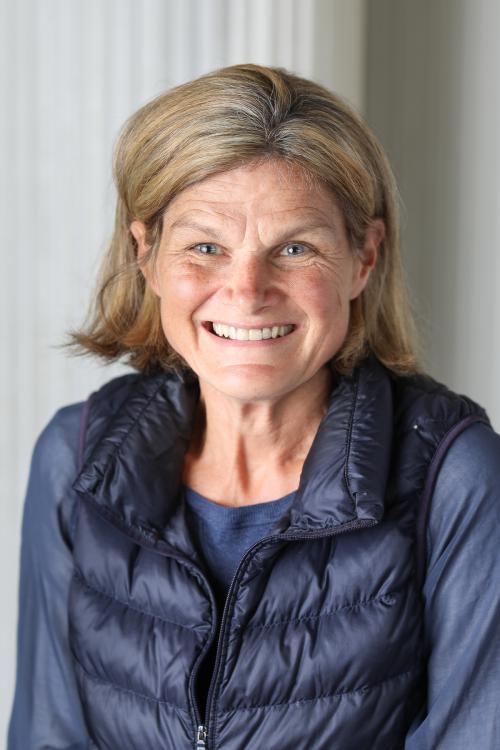 Head of department: Lucy Taggart
Head of department: Lucy Taggart
Saint Ronan’s aims to provide a range of educational opportunities suited to the interests, aptitudes and needs of the children in its care. The provision for those children with special educational needs was judged by the School Inspectorate (ISI inspection, 2013) to be ‘excellent’.
All teachers at Saint Ronan's set suitable learning challenges for the children through high quality teaching and respond to children's diverse learning needs. We are an inclusive school and endeavour to remove barriers to learning and participation by providing an education that is appropriate to pupils’ needs.
Support strategies and resources are employed in the classroom and any child who is identified as ‘struggling’ to make progress, or whose assessment profile warrants further analysis, is referred to the Learning Support Department and an ‘in-school’ assessment is carried out by our SENDCO. From here it is identified whether the child would benefit from extra learning support (in the form of one-to-one lessons) and whether an external referral is necessary to diagnose any specific learning or behavioural difficulty. This is organised by the school SENDCO, who liaises with all members of staff, providing essential information prior to the assessment. All learning support teachers hold a specific ‘DYSLEXIA’ qualification. The cost of additional tuition is carried by the parents.
Any child receiving individual tuition will have an Individual Pupil Profile (IPP) written by their learning support teacher and their English/Maths teacher and made available to all subject teachers. The classroom recommendations in the IPP will be taken into account by all teachers when planning lessons to ensure continuity across the curriculum.
As well as one-to-one support, pupils with educational needs may be supported in the classroom by a TA in Year 3.
Children with an Educational Psychologist’s recommendation may be permitted extra time in their internal and external examinations (typically 25%). Some children may require a reader or a writer (an amanuensis). Such help would be provided by the Learning Support Department and any peripatetic staffing costs incurred will be charged to the parent in the same way as private lessons.
Critical to the development of all children at Saint Ronan’s is the celebration and extension of areas of strength and talent. All children show personal areas of strength and skill and can therefore feel successful and valued at every stage of their school life. The atmosphere of security and encouragement, coupled with careful and structured long-term support, ensures that children develop to their full potential in areas they find more challenging. Our aim is to create a positive and supportive environment for all pupils.
The Learning Support team consists of:
Mrs Lucy Taggart (SENDCO) – BA (Hons), PGCE, SEN Diploma
Mrs Carolyn Freeman – BEd, University of Cambridge, Dyslexia Institute Maths Programme
Mrs Mary Woolgar – MA, University of St. Andrews, SEN Diploma
Mrs Marie Bottle – BA (Hons), SEN Diploma
Mrs Teletha Tapper - BSc (Hons), PGCE SpLD, Diploma, Maths No Problem specialist
Mrs Tee Aitken – BA (Hons), SEN Diploma